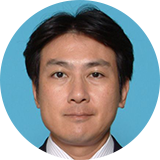End of "unified recruiting"
Up until now, almost all Japanese company workers have followed more or less the same path. They begin working for a company immediately after graduating from university, train to become full-fledged corporate workers and get promoted to managerial posts when they reach a certain point. But this is beginning to change.
This fall, the Japan Business Federation, or Keidanren,
decided to scrap guidelines on how companies recruit new graduates. The move is likely to usher in various recruiting styles. For example, firms will be able to recruit the talent they need throughout the year rather than during the once-a-year recruiting period. They will also be able to invite workers with highly specialized skills from other companies, or hire foreigners, among other things. They could also employ former workers who've improved their skills at foreign firms.
This is similar to the way professional baseball teams function. They secure rookie players through a draft system, boost their overall strength using free agents and hire foreign players with superb skills. Every team faces the draft with a concrete strategy. For instance, those with few good pitchers will focus on recruiting pitchers, while those that don't see the need to change their lineup for another 5 years will select fresh high school graduates so they can spend time nurturing them.
Similarly, companies will have to look ahead, identify which business has growth potential and decide what kind of talent to add and where. They will have to come up with more meticulous recruitment strategies.

Aging of workers
As Japan heads into an era where centenarians are no longer rare, the aging of workers is another issue Japanese companies need to tackle.
This fall, the government came up with a plan to introduce new legislation that would allow people to keep working past the current retirement age of 65, until 70. One in every 5 workers is now 60 or older. By 2030, one in every 4 workers is expected to be elderly. Some of them have the highly specialized skills and knowledge, ample life experience and social skills that companies seek. I believe that the key to survival for companies lies in whether they willingly hire these people as a main force.

In order for seniors to demonstrate their full abilities, it is vital to reward them with suitable salaries. In Japan, workers in their 20s and 30s are paid less compared to their peers in the United States and Europe. Their wages soar in their 40s and early 50s, but fall rapidly after that. Such a plunge in remuneration could deprive seniors of their desire to work. In order to prevent this, there may be a need to review the current pay scale and make increases and decreases in wages more moderate. Needless to say, such changes would require the consent of employees and labor unions.

It is also important to provide seniors with adequate refresher programs. Considering the rapidly changing times, employees may lack the skills necessary to complete a project. They will need to acquire new knowledge and skills regardless of their age if they find it difficult to complete new assignments with the expertise they obtained while they were younger.
In the United States and Europe, companies often provide funding or dispatch experts to local advanced education institutions to nurture the human resources they need. Japan also plans to open vocational universities, designed to nurture professionals with expertise in various fields, from the upcoming academic year. The institutions, as well as refresher courses, need people with the right long-term experience to teach. Nurturing human resources is the key to Japan's economic development. So businesses should willingly cooperate, both financially and in terms of personnel, to institutions offering refresher programs.
When hiring senior employees, it is also important to take into account their physical strength and health. Some seniors may want to work 5 days a week, while others may prefer coming only in the mornings, or working only 2 or 3 days. Companies should take measures to create diverse options for them.
We are heading into an age when many of us live to become centenarians. In order to have people of all ages work actively, businesses must review their uniform employment system and offer various work styles to accommodate individual needs. It's not an easy task, but companies must take up the challenge if they are to survive.

